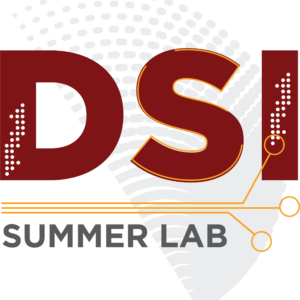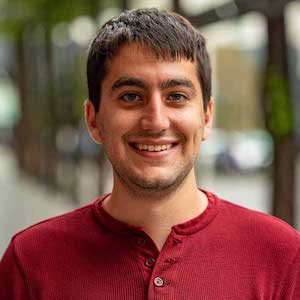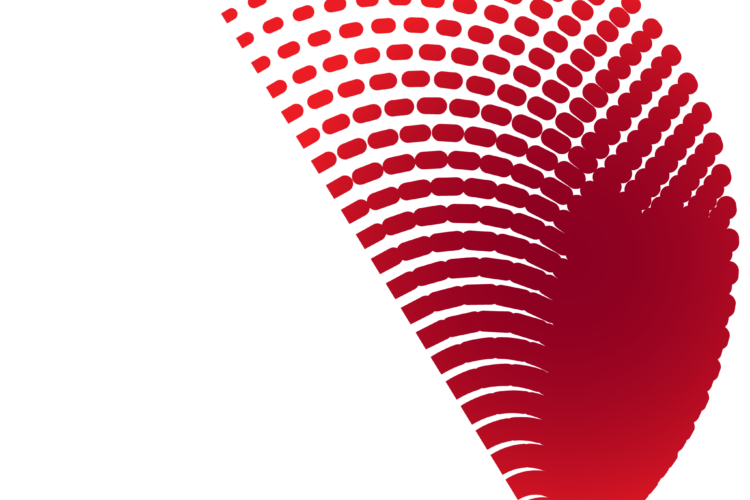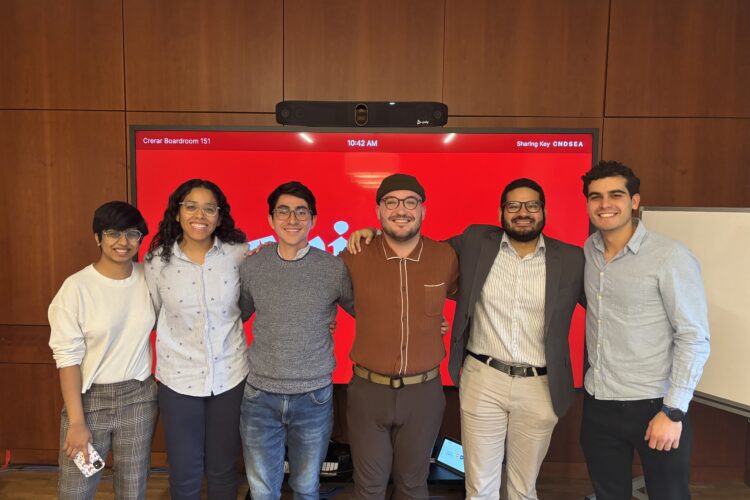DSI Summer Lab Returns In-Person With 49 Students From Across the U.S.
After two years of remote participation, the 2022 DSI Summer Lab will bring 49 high school, undergraduate, and master’s students to Chicago for a ten-week immersion into data science research. The first in-person Summer Lab since 2019 features an expanded Social Impact Track, partnerships with the data.org Capacity Accelerator Network and organizations from the 11th Hour Project, and over two dozen research mentors from the University of Chicago and its affiliated national laboratories.
 The eleventh edition of the Summer Lab program is the first under the umbrella of the Data Science Institute, after its previous homes in the Computation Institute and the Center for Data and Computing. Its format pairs students with a faculty mentor or non-profit organization to work on a research project applying data science across a variety of domains, including computer science, political science, climate and energy policy, public policy, materials science, computational psychology, biomedical research, and more.
The eleventh edition of the Summer Lab program is the first under the umbrella of the Data Science Institute, after its previous homes in the Computation Institute and the Center for Data and Computing. Its format pairs students with a faculty mentor or non-profit organization to work on a research project applying data science across a variety of domains, including computer science, political science, climate and energy policy, public policy, materials science, computational psychology, biomedical research, and more.
“These students receive both an introduction to data science and its methods but also real research experience on ongoing projects,” said David Uminsky, DSI executive director. “Many Summer Lab alumni have co-authored papers for major conferences, won awards, and some have subsequently enrolled at the University of Chicago for both undergraduate and graduate programs. I look forward to seeing the energy that this next generation of data scientists brings to the UChicago campus this summer.”
Since its origin, the Summer Lab program has acted on its commitment to broadening participation in data science by recruiting and welcoming students from all backgrounds. The 2022 cohort includes over half women and non-binary students, as well as a racial and ethnically diverse pool of students from around the United States.
“We strive to provide as many opportunities for as many excellent students as we can,” said Katherine Rosengarten, DSI Program Manager and co-leader of the Summer Lab with Uminsky and Kyle Chard, Research Associate Professor in the UChicago Department of Computer Science. “The potential impact this program can have on each student’s future is exponential and very individualized to each student’s goals. Through this program, we hope that students learn more about all the various career paths they can have, build tools to help them achieve their goals, and find a community of fellow students, researchers, and faculty who will help them on that journey.”
For the first time this year, Summer Lab will also partner with the data science education network, a coalition led by the DSI and funded by data.org that brings together minority-serving institutions to build a modular, experiential data science curriculum geared toward financial inclusion. Seven students from those partner institutions will come to UChicago for this year’s program.
“The network puts us in direct partnership with schools that have budding or existing data science programs, and allows us to create a direct pipeline for their students to the Summer Lab program, thereby expanding opportunities and potential impact,” Rosengarten said.
The program will also welcome 12 students from nine Chicago-area and California high schools, 23 undergraduates from nine universities, and 14 UChicago master’s students from the Computer Science, Computational Analysis and Public Policy, and Computational Social Science programs. They will work with 29 mentors from 13 different units, including Argonne National Laboratory, Fermilab, the Harris School of Public Policy, the Center for Spatial Data Science, and UChicago Departments of Computer Science, Psychology, Political Science, and Astronomy and Astrophysics.
Students will work on scientific subjects ranging from cosmic surveys and neutrino detection to linguistics and medical imaging to machine learning and robotics. A number of projects will also come from DSI research initiatives on Internet Equity and Data & Democracy, and the DSI partnership with the 11th Hour Project, an arm of The Schmidt Family Foundation that serves nonprofits in energy, food and agriculture, human rights, and marine technology. The Summer Lab Social Impact Track, which debuted last year, will feature projects with 11th Hour organizations Inclusive Development International, mBio, Remora Fishing Traceability, the Schmidt Ocean Institute, and WoMin African Alliance, as well as local non-profit BPI Chicago.
“Our social impact partners are very excited to work with students full time, to be a part of a longer summer program where they have more time to engage with the students,” said Daniel Grzenda, staff data scientist at DSI and leader of the Social Impact Track. “The projects we work on are more research-focused, and they’re larger impact projects rather than just one-off pieces of software.”
Summer Lab will make its home in the John Crerar Library Building, sharing space with the Computer Science Instructional Laboratory (CSIL), the UChicago Library’s GIS Hub, and the Media Arts, Data, and Design Center. Social events will include game nights with the Weston Game Lab, field trips to Argonne National Laboratory and the Museum of Science and Industry, and other exciting Chicago activities. With the return to an in-person program, the organizers anticipate that the students will form even stronger relationships that last far beyond the summer.
“I always say to the students that they learn more from each other than they do from us,” Chard said. “I think having those random ad hoc meetings in a room where they can learn from each other and get a much broader range in terms of experience with different projects will make the cohort-building side of the summer so much stronger than in the virtual environment of the last two years.”

Incoming UChicago Data Science and Computer Science Associate Professor raises additional $106 million in new funding round for company, Together AI

Assistant Professor Aloni Cohen Receives Prestigious Award for Groundbreaking Research in Machine Learning Complexity

Spring 2024 Distinguished Speaker Series
